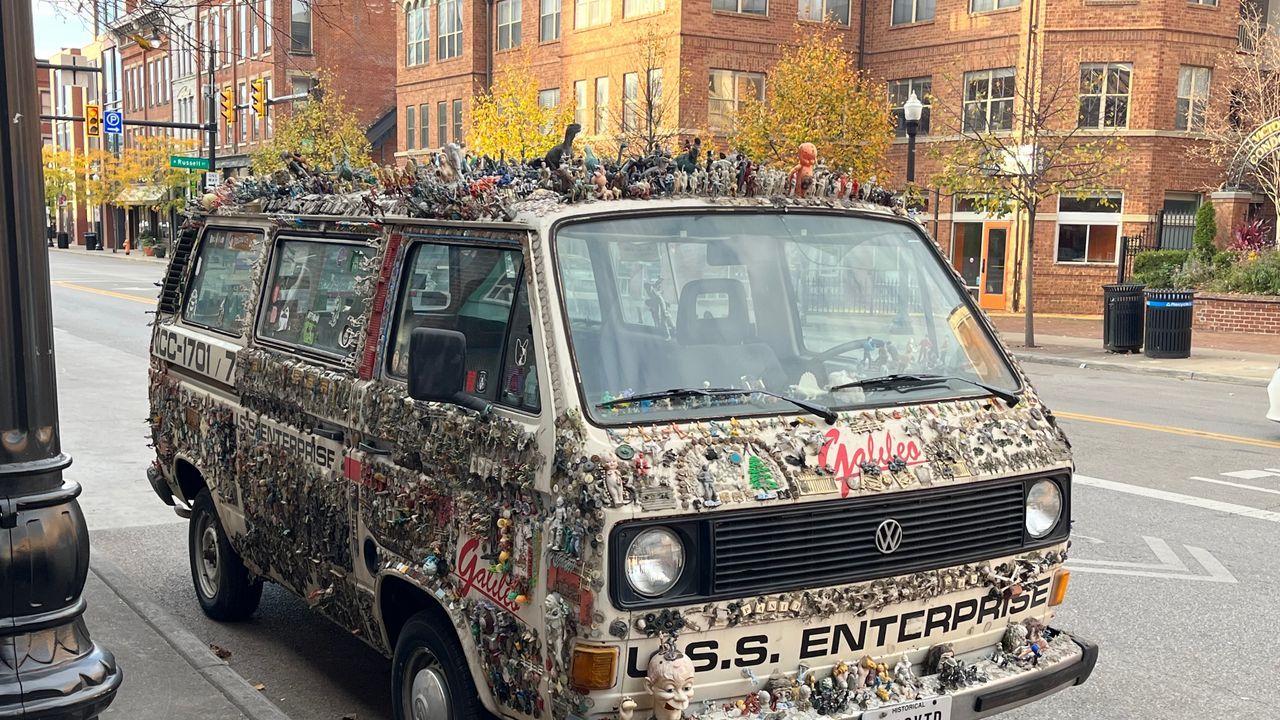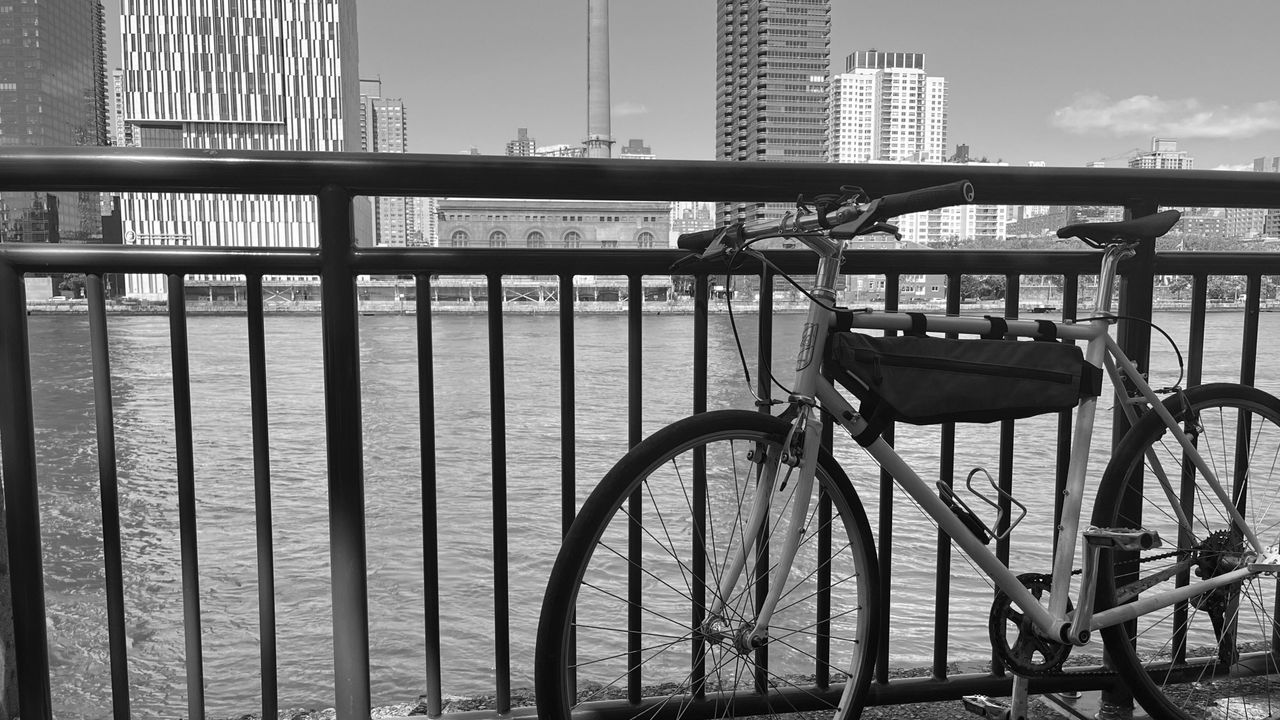Year in Review
The last time I wrote a "year in review" post was 2017, and before that in 2012. Reading my old writing is nostalgic and horrific.
By the numbers, 2023 was pretty normal: I read around 20 books, ran around 400 miles. It's funny how the statistics even out to the same numbers when, during the year, I think I'm in a reading drought or, like several months this year, hadn't run in weeks.
What was the best?

I think that the best book in general that I read was Achieving Our Country by Richard Rorty. I think I've been politically shifting for a while now – not to the left or the right, but around questions of reform versus radicalism, unification versus schism. Rorty isn't the last word on the matter, but reading him was inspiring because it opened my eyes to the other possibilities of how the left could organize and communicate. The best fiction book was Kindred. Octavia E. Butler writes books that are more vivid than any film.
I think my favorite film of the year was also, probably, the last one that I saw - The Favorite. Every Olivia Coleman performance gets me - even her brief role in The Bear, and I'm fully on board with the weird artistic vision of Yorgos Lanthimos.
What was 2023?

For tech, the main element was the unified shift from crypto to AI. I wrote about AI, and read a bit about AI. I don't think it's going to take over the world, or make everyone's lives better, and I don't think it's a dud like crypto was.
If there's anything, I think that crypto was a unifying moment for an ugly subculture in technology. The lazy indifference to substance and truth, the zero-sum scammer mindset. The insufferable cockiness that they'll eventually be proven right. The broad-daylight connections to far-right conservative politics and ideology.
I hated crypto, and still do. Tech is about making something real and making the world better: crypto created nothing and made the world worse.
I like AI better, relatively. But I'm afraid that the subculture of crypto has permeated AI to some extent. The guaranteed eventuality of AI taking over, becoming better with every training, is the new edition of the guaranteed eventuality of hyper-bitcoinization. Anyone who doubts this is a luddite who is "ngmi," in the lingo of crypto.
Hearkening back to Rorty, I think that I recognize millenarianism in many of these movements – the organization of a belief system around a coming fundamental reorganization of society. Whether it's crypto people on the eventual fall of fiat currency and hyperinflation, or AI on the eventual overcoming of the mind, or Christians on the Second Coming, or Marxists on the eventual revolution. The more I experience, the less I believe in any kind of eventuality or assured destination.
Of course, it is useful to have a narrative, and an assured march toward progress or salvation is a good one. But we should remember that history isn't some epic story. An innovation that seems obvious in hindsight can sit undiscovered for decades. Technology can go backwards, like how we forgot about Vitamin C and scurvy, or ancient concrete or iodide. Nothing is guaranteed, everything is intentional.
Anyway, I don't know – AI is fine. It's an improvement. I'm so tired of having to talk about it with friends and family and at work. I've lived through Web 2.0, the metaverse, crypto, chatbots, audio assistants, the sharing economy, VR, the mobile web, the internet of things, wearable technology. AI is another thing to put on the covers of magazines. My job hasn't changed that much: designing and implementing technology is still hard and worthwhile. The reasons I got into it – that I love learning, understanding, solving problems – aren't affected by the trends.
Besides that, what was 2023?
2023 was the first time I felt afraid to write anything about geopolitics. That fear has been validated a few times. So here's where I would've written something but won't.
New York
It's dangerous to say given the global scenario, but for me, this was a pretty good year. Brooklyn has been a vastly better place for me to live than San Francisco was. My community is here, I love my neighborhood, and there is always more to discover. I've lived in DC and San Francisco before this. By the time I left DC, I had seen basically every corner of the city. The only remaining neighborhoods to discover were the bland city cottage streets of Spring Valley or Barnaby Woods. San Francisco too felt like a known quantity after a few years. I didn't review all of the hills, but I saw most of the major ones.
New York is expansive in a way that's hard to comprehend. Its population is 10x San Francisco, 12x DC. It's 5x larger than DC, 6x larger than SF. The diversity and density is unlike anything in America. It's a place I could live my whole life and still not know every neighborhood. There are pockets of it that look like suburbs, but most of the city is undeniably a city. It's an incredible place to live.

This year I really liked Pioneer Works, where I saw some great music. I started running the trails in the woods in Prospect Park. I used the heck out of Citi Bike, and got used to riding across the bridges into Manhattan. Found a bakery I like - La Bicyclette, and the ideal bar for the mid-30s crowd, Beer Witch. I joined The Whitney and MoMA and went a few times.
Work
At the end of 2022, I decided that I needed a job. Placemark had made an impact but plateaued at a certain revenue number, and I wanted to place another bet instead of doubling down. I joined Val Town, maintained Placemark, but announced its end in November.
Val Town has been great, and I'm excited for our 2024 plans. What one can hope for in startups is to solve a lot of interesting problems, and let none of them be interpersonal beefs. We've certainly had our share of meaty technical problems to solve at the core of the product, and trying to solve those at the same time as iterating fast on user-facing UI, branding, and social features. And it's all been from a place that's honestly a pretty darn good workplace. Anyone who has worked at very small companies (we're 3) knows how hard it can be to have both.
I'm still in the midst of Placemark shutdown plans. Turning off services, filing for dissolution of the LLC, moving billing information around so I can close the bank account. I've been taking some related notes on the micro blog.
Is this the right time and place for a Placemark "post-mortem"? Probably not. I'll just summarize: finding a profitable niche in which to launch a solo bootstrapped company, and then running that company, is hard work and really challenging mentally. I have no regrets making the decision to start it, or to shut it down, and I think when I try again, I'll be at least 10% better.
In the process of all of this, I've seen every variation of company. The big companies whose CEOs wished they stayed small, and who are just waiting for a moment to exit. The bootstrapped companies on their third year of unprofitability. The bootstrapped company making six-figure profit that the founder is mostly just bored by and never talks about.
As my aunt Grace, who lived in the Ozarks, put it, “I get what I want, but I know what to want.” - The Joy of Being a Woman in Her 70s
If there's one quote that I try to live by, it's this one. Learning what actually is happiness for you, is success for you, is one of the most useful things you can do. The definition of success is not obvious or universal.
2024
See you there. I'll probably have a normal post on January 1.
@macwright.com on Bluesky, @tmcw@mastodon.social on Mastodon